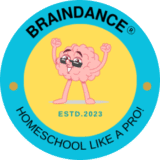When you begin your homeschooling or unschooling journey, one of the first questions you’ll face is:
“What does my state require for documentation and accountability?”
The answer? It depends—sometimes dramatically—on where you live.
Different States, Different Rules
Homeschooling laws and documentation requirements are set at the state level, and they range from minimal to highly detailed:
- Minimal requirements: In states like Alaska or Texas, families may only need to notify the state of their intent to homeschool—no portfolios, no annual assessments, and little to no paperwork.
- Moderate requirements: Many states require an annual notice of intent, basic attendance records, and coverage of certain subjects. Some may ask for a portfolio or samples of student work.
- Strict requirements: States like New York, Pennsylvania, and Vermont often require detailed educational plans, regular progress reports, work samples, portfolios, and annual standardized testing. Sometimes, parents must report directly to their local school district.
For a full, up-to-date map of state requirements, I recommend visiting the HSLDA Homeschool Laws Map.
How State Laws Impact Your Homeschool Experience
- Flexibility vs. Oversight:
In states with minimal requirements, families have more freedom to follow their child’s interests and document learning in creative ways. In stricter states, accountability can feel daunting, especially if you’re new to homeschooling or drawn to unschooling. - Decision-Making:
Some families choose where to live based on homeschool laws. Others adapt their approach to meet their state’s requirements, seeking resources that make documentation easier and more meaningful.
How My Unschooling Books Support You
My “Unschooling for Grades K–5” books are designed to help families document learning naturally—without rigid checklists, gradebooks, or rubrics. Instead, I encourage you to:
- Use Journals: Children can reflect on what they discover, try, and wonder about each day.
- Capture Projects and Experiments: Photos, drawings, and notes about hands-on activities become authentic evidence of learning.
- Collect Writings and Creative Work: Stories, poems, diagrams, and explanations showcase growth across subjects.
- Build a Personal Portfolio: Gather artifacts that matter to your child and your family—these can be shared with evaluators if required or simply treasured as a record of your journey.
This approach honors the spirit of unschooling—real-world, curiosity-driven, and deeply integrated across STEAM subjects—while still giving you plenty to show if your state asks for documentation.
A Note on Content Coverage and Supplementing
Because every state (and sometimes even school districts) have their own requirements, and every family’s journey is unique, I encourage parents to use my books as a flexible framework for learning. For families who need to meet specific standards, pairing my books with trusted online resources—like Zearn Math, Read Theory, Readworks, Spelling City, and Quill.org—can help ensure you’re covering all the bases.
You’ll find a gentle reminder in my copyright notice:
My books are designed to inspire, guide, and support your child’s growth, creativity, and curiosity. They are not intended as a one-size-fits-all solution or a guarantee of complete content coverage for every state. Instead, they offer a roadmap for meaningful, personalized learning and plenty of inspiration for building your own adventure.
Encouragement for the Journey
No matter where you live or what your state requires, you can document learning in ways that feel authentic and joyful for your family. Whether your portfolio is filled with journal entries, photos of experiments, creative projects, or reflections on a nature walk, you’re building a record of curiosity, growth, and lifelong learning.
Remember—homeschooling isn’t about checking boxes. It’s about helping your child discover their strengths, follow their passions, and grow into confident, capable learners. I’m here to support you every step of the way!

